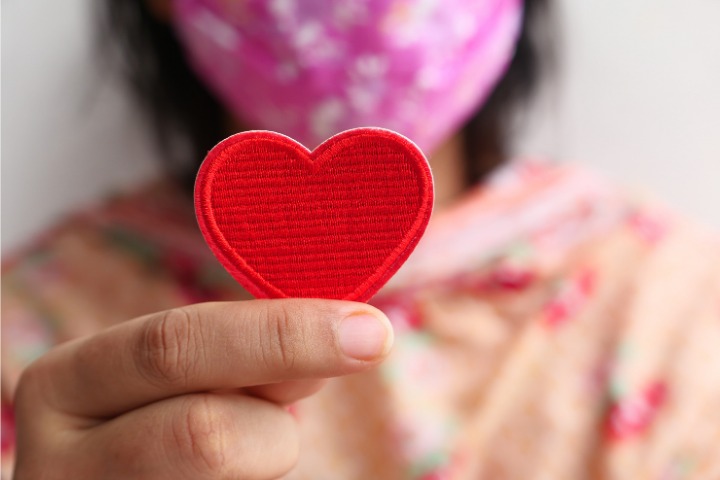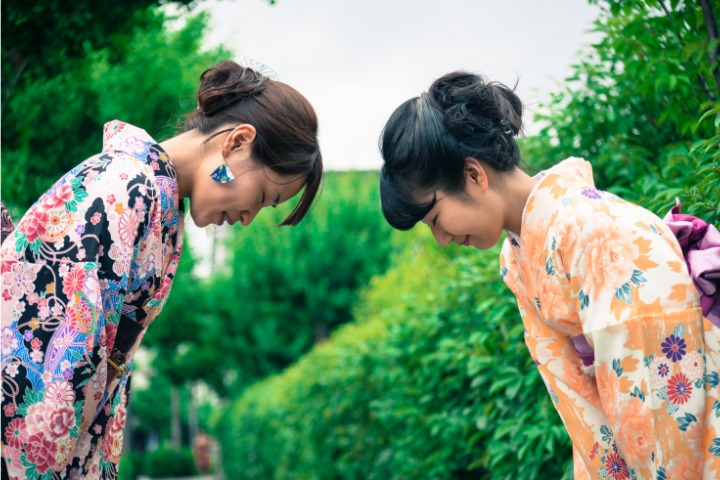Aside from anime, traditionalism, and everything kawaii, one of the main cornerstones of Japanese culture seems to be its empathy and politeness. First-time visitors and expats alike often note that Japanese people are polite, kind, and exceptionally giving. It’s as though empathy is simply woven into the social norms that rule Japan.

Credit: Canva.com
What is Empathy?
Empathy is loosely defined as being able to understand or feel what another person is feeling. Being empathetic is being able to relate to another’s experience, even if they don’t directly describe their feelings or thoughts. And in a culture where communication is relatively indirect, Japan knows how to practice empathy with ease.
One key way this is done in Japanese culture is by becoming good at kuuki wo yomu or “reading the air.” Reading the air is being able to understand someone’s true meaning or feelings based on subtle cues. These cues may include body language, indirect phrasing, or even someone’s tone of voice. Though these cues may not be obvious, knowing how to look for them and “read” them allows one to better empathize with others around them. This way, they can anticipate what others really want or need, or how to best respond to them to make them comfortable.
Everyday Examples of Empathy in Japan
Social and professional interactions in Japan require a lot of “reading the air” and thinking empathetically about what others need and how to best cooperate with each other. Empathy can be seen broadly in Japanese culture and everyday life. Here are a few common examples that people often encounter when they visit or live in Japan:
1. Speaking Quietly
On the train, in shopping centers, and in cafes, it’s common for people to lower their voices in public and shared spaces. It’s usual to even see signs asking people to refrain from talking on the phone. This is out of consideration for others and to avoid disturbing other people.
2. Using English With English-Speaking Customers
Often, Japanese staff members will try to speak English with foreign and English-speaking customers, even if they may struggle with the English language. This is to try to cater to the needs of the customer and to make them feel comfortable.
3. Keeping Public Places Meticulously Clean
Japan is known for its meticulously clean streets, and a lot of this has to do with customs of keeping spaces tidy. Leaving used cans and trash around is seen as rude and disruptive to others. Not only this, but Japanese people also know to take their trash to their own homes, such as after a picnic.
4. Moving Your Backpack and Luggage on the Train
Most Japanese people know to keep their luggage out of the way, even going as far as implementing backpack rules. In these rules, train riders are expected to put their backpacks on their front so they don’t take up too much space or hit other passengers.
5. Sumimasen as Arigatou
Looking to the Japanese language, it’s typical for an apology like sumimasen to be used as a thank you. This subtly shows that one acknowledges that a favor may have been a burden for the other person, and they can simultaneously apologize and show thanks for the other’s action.

Credit: Canva.com
Empathy During COVID-19
During the COVID-19 pandemic, Japan was also quick to adopt mask wearing to prevent the spread of the coronavirus. In fact, a 2020 survey showed that over 80% of people in Japan wore a mask in close-range conversations, even without a mask mandate in effect. And though it could be assumed that people may wear a mask simply to protect themselves, in Japan, wearing masks when sick has been a common practice long before COVID-19. This is to help protect others and maintain a feeling of comfort, especially when coughing or sneezing in a crowded place such as in a train. It’s no surprise, then, that the majority of the population continued wearing masks during the coronavirus pandemic.
Is Empathy Always a Good Thing?
Empathy is tightly woven into Japanese culture. But there are some instances where it can cause some confusion or friction. For example, Japanese culture prioritizes the feelings of a group, not individuals. In this way, compromising and meeting in the middle is often necessary for the majority of people to get along. If one person’s feelings aren’t being treated with empathy, they may continue to be ignored if they clash with the larger group. Similarly, if your own personal desires go against the desires of others, you, too, are expected to act empathetic towards them and sacrifice your own needs for the greater good.
Putting your own individual needs and feelings aside can be extremely hard, especially for those who came to Japan from a more individualistic culture. However, being empathetic towards others can largely be seen as a positive point of Japanese culture. Anticipating the feelings of others and taking actions to keep the peace creates a society built on cooperation and kindness. And though empathy in Japan isn’t always perfect, it just might be worth it for the peacefully quiet trains and litter-free streets.
For more on etiquette in Japan, check out this article!
Studying in Japan? 6 Essential Etiquette Guidelines to Remember






